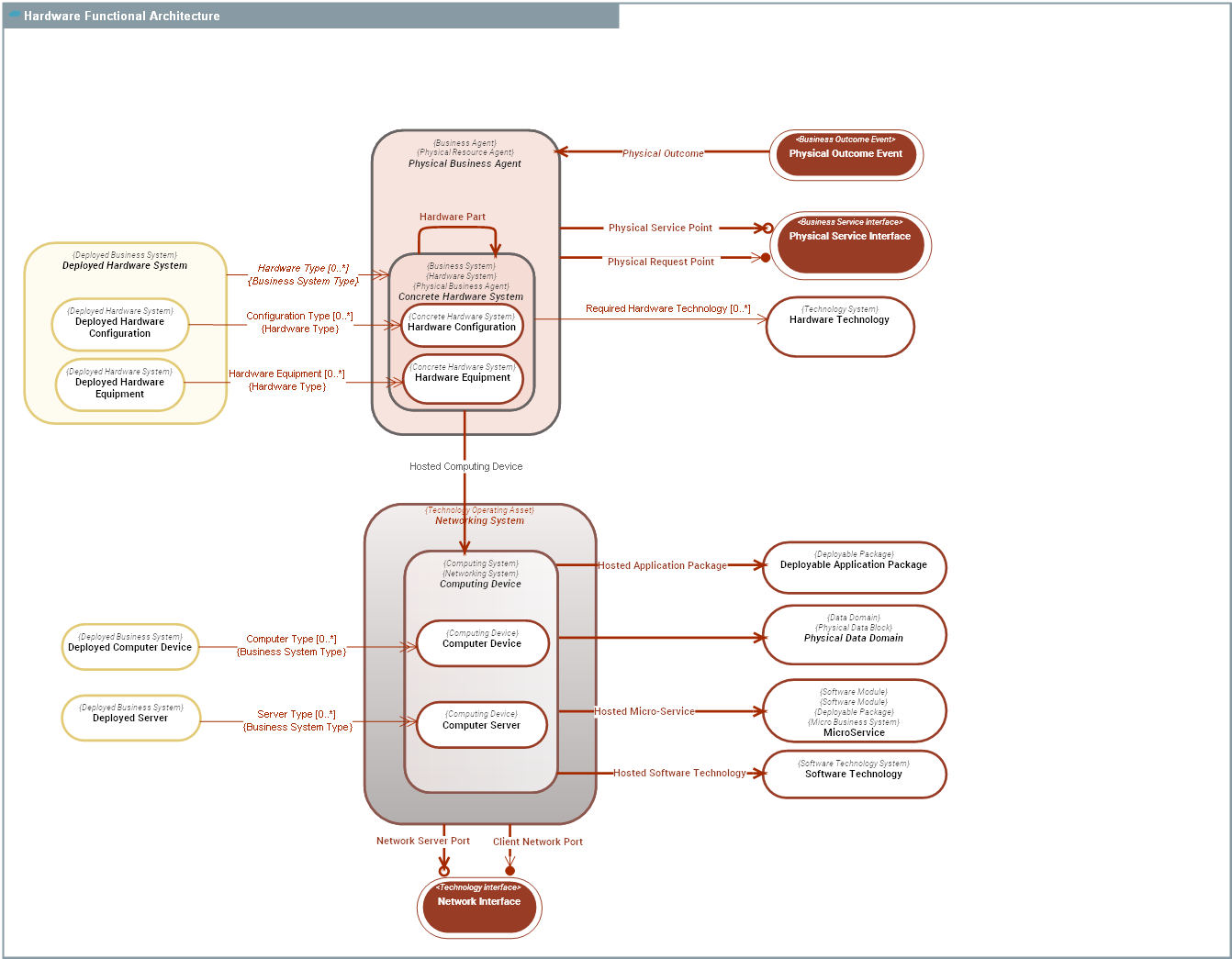CONCEPT DOMAIN - SOF - Business Hardware Operating Model
DOMAIN CONCEPT GRAPH

CONCEPT DESCRIPTIONS
ABSTRACT CONCRETE
| Concept | Description |
|---|---|
 Computing Device
Computing Device |
A Computing Device is a physical or virtual computer that can host and run software code. Together with their Deployable Application Packages, they provide Information Outcomes. Examples: Computer Device, Computer Server. |
 Concrete Hardware System
Concrete Hardware System |
A Concrete Hardware System is a man made tangible artifact which exposes Hardware Capability(ies) and can produce and react to Physical Outcome Events. A Concrete Hardware System performs System Processes and participates to System Processes or to Business Processes. A Concrete Hardware System can embed Computing Systems. Together with its embedded Computing Systems, a Concrete Hardware System can also produce and react to Information Outcome Events. A Concrete Hardware System may be based on a set of Hardware Technology(ies). Examples: - Connected Drone with Online Payment App. - 3D printer. - Automated Guided Vehicles (AGVs) - Connected fridge providing an ordering Functionality and of course a freezing Hardware Capability. - Production equipment in an assembly line (metal forging machine) - Car
|
 Deployed Hardware System
Deployed Hardware System |
An Deployed Hardware System is a man made tangible artifact which exposes Physical Resource Capability(ies) and can produce Physical Outcome Events. An Deployed Hardware System can embed Computing Systems. Together with its embedded Computing Systems, an Deployed Hardware System can also deliver Information Outcomes. An Deployed Hardware System may be based on a set of Hardware Technology(ies). Examples: - The Connected Drone number 234 with Online Payment App. - The 3D printer in Paris Fablab. - Robert's automated guided vehicles (AGVs) - The Production equipment of the assembly line in the factory of Shenzhen. |
 Networking System
Networking System |
Networking System is Technology Operating Asset that provides networking capabilites through the use of Network Interfaces. |
 Physical Business Agent
Physical Business Agent |
A Physical Business Agent is any identifiable Business Agent Type that exists in the physical universe. It is characterized by its ability to occupy space, possess mass, and interact with other Physical Business Agents through fundamental forces. Physical Business Agents are subject to the laws of physics and can be observed, measured, and analyzed using scientific methods. They can produce and consume Physical Outcome Events.
|
 Physical Data Domain
Physical Data Domain |
A Physical Data Domain is subset of the metadata of an enterprise’s data store. Each Physical Data Entity in a Physical Data Domain has CRUD characteristics. For instance, the "Client" Table in the "Sales" Physical Data Domain, has all CRUD characteristics. Physical Data Domains define functional data boundaries used both for Data Allocation to Business Systems (see Resource Agent Store) and data governance for data stewardship (see Data Catalog). |
SERIALIZATION FORMAT
TEXTUAL SYNTAX RDF



 OMG - UAF - System
OMG - UAF - System Martin Fowler - Micro-Service
Martin Fowler - Micro-Service